In honor of its 20th anniversary and theatrical re-release, we honor the impact and influence of the South Korean cult thriller “Oldboy”.
After being mysteriously kidnapped and imprisoned with no human contact for fifteen years, Oh Dae-Su (Choi Min-Sik) is suddenly released without any explanation. In a twisted game of cat and mouse, he has only five days to retrace his past, track down his captors, and get his revenge.
Oldboy, a cult classic that has inspired auteurs for nearly two decades, will return to US theatres for the first time in 20 years. Thus, it’s the perfect time to revisit the cinematic masterpiece of Oldboy and its enduring legacy.
When Oldboy was screened at Cannes, Park Chan-Wook took home the Grand Prix award. Not only did this accolade thrust the Korean director into the public limelight, but it also brought mainstream attention to South Korean cinema, bringing The Hallyu Wave (the global popularity of South Korean culture) of film to fervent international audiences.
I first became aware of Oldboy during my days as a Blockbuster employee in 2006, when I was particularly infatuated with Asian & Korean Genre films. I could not get enough of the film catalogs of Kim Jee-Woon, Bong Joon-Ho, and of course Park Chan-Wook.
I was already familiar with Park Chan-Wook’s work, having been a die-hard fan of Sympathy For Mr. Vengeance. So, when I learned that this trailblazing director intended to create his Vengeance Trilogy, which included both Sympathy and Oldboy, my interest in Oldboy as a standalone effort was piqued.
I remember renting it from my free employee account before buying the DVD mere days later. In short, I became obsessed. I watched the film with my then-flatmate, and I remember how we both sat in stunned silence the moment the final credits rolled.
Neither of us spoke for a couple of minutes following the film’s climax.
Try to understand that, at the time, we had not experienced anything like Oldboy in film. Ever.
Oldboy opens with a jaw-dropping scene featuring our Protagonist, Oh Dae-Su (Choi Min-Sik), gripping a suicidal man by his tie as he literally teeters on the precipice of a deadly rooftop fall.
Oh Dae-Su states, ‘’I want to tell you my story…you can die a little later.’’
From this shocking opening sequence, Oldboy grabs you by the throat and does not let go.
The cinematography alone in this scene is enthrallingly iconic, and it sets the stage for the unique, envelope-pushing sequences which are prevalent throughout the rest of the film.
We are given a brief glimpse into Oh Dae-Su’s life before the events that resulted in his kidnapping. We see him ‘celebrating’ his 4-year-old daughter’s birthday by being a drunken public nuisance in a Seoul police station late one night. We are given mere minutes to form a snap judgment around our main character before he is thrown into a life of torment in a custom-built prison.
Neither Oh Dae-Su nor the audience know why someone would want to punish a man so vehemently… for 15 long years.
Oldboy pushes the ‘Unreliable Narrator’ trope to its dizzying limits. In this act of the film, we feel trapped along with Oh Dae-Su in a claustrophobic hotel room as his grip on reality loosens whilst he is plagued by hallucinations, sexual frustration, and self-harm in his prison suite.
The enduring power of Oldboy lies within its ability to submerge us in its suffocating atmosphere.
The subtext is always challenging our personal ethics as our suspicions towards Oh Dae-Su heighten.
Just what the hell did Oh Dae-Su commit in his past that would warrant such suffering, and why are we still sympathetic toward his cause?
When Oh Dae-Su is finally re-released back into the wide world of metropolitan Seoul, we are taken on a break-neck journey of vengeance, suffering, and redemption as the film subtly feeds us a breadcrumb trail of clues as to who is really pulling the strings.
Oldboy’s cinematography is laden with rich symbolism and Arthouse aesthetics: note the recurring imagery of the purple kaleidoscopic pattern, which re-emerges during pivotal scenes, reminiscent of the psychedelic interiors of Argento’s Suspiria. Purple represents nobility, wealth, power, and ambition: all traits which are intrinsic to our as-yet-unseen Antagonist, whereas the kaleidoscope itself represents change and growth through balance and harmony.
It is these little nuances and attention to detail which set Park Chan-Wook apart from his fellow filmmakers: everything he chooses to show us has a payoff.
Pay attention upon repeat viewings, and you will be rewarded with a richer understanding of the story on a deeper level.
In real life, the 1997 financial crisis of South Korea would prove crucial to the export of future films: Kim Dae-Jung was elected president.
Kim Dae-Jung was very aware of the impact of the country’s recession at the time, and he placed importance on social reforms such as the film industry. He sensed the growing popularity of the Hallyu Wave and sought to pour more funding into South Korean film projects intended for international export.
The potential was there, but directors like Park Chan-Wook would need to pull something special out of the collective bag to woo foreign audiences.
His risk-taking and unique approach to filmmaking would contribute to a wholly different ‘Crime-Thriller’ movie genre.
Oldboy is not afraid to take risks; its subject matters strive to peer into the dark recesses of the collective consciousness.
In the film, sexual assault towards women is depicted as a sort of cruel joke. There is no Male Gaze here, just men chasing their juvenile libidos regardless of consequence.
There is humor to be had in witnessing the absurdity of Oh Dae-Su’s plight, and torture scenes are framed in such a ridiculous way that you cannot help but laugh alongside him. How Oh Dae-Su maintains his humor despite his grim reality is a lesson which all of us can glean some positive attitude from.
The violence depicted will also test your perseverance for what you are able to tolerate. The grotesque injuries call to mind wounds of war — such is their vivid and grotesque nature. Then there is the octopus scene. Vegetarians, beware; this is not an easy watch, particularly if you understand Choi Min-Sik as an actor. Like me, Choi Min-Sik is vegetarian, but he is also Buddhist.
The scene in question features Oh Dae-Su eating a live octopus. Newly freed from his prison, he stumbles into a sushi bar demanding to eat ‘’something alive,’’ and the ensuing act will either leave you reaching for your barf bag or for your tissues.
It is this rebellious, chaotic, no-fucks-given approach to filmmaking that truly sets Oldboy apart from its contemporaries.
Neither the director, crew, nor actors are afraid to take risks in the name of art, and their passion shines through.
The minute symbolism of the film makes for a stunningly beautiful watch despite its gratuity. The repeated use of mirrors is intrinsic to the arcs of the three many characters, including Mido — the sushi chef who serves Oh Dae-Su the octopus; when the pair’s hands touch, you know that Mido is along for the ride.
I fell in love with Mido; however, in retrospect, her submissiveness which leads to Oh Dae-Su’s subjugation of her, left me uneasy upon repeat viewing and may come off as misogynistic to modern viewers.
Mido’s submissiveness DOES, however, serve a purpose. The evolution of her character may not have progressed properly were it not for this personality trait of hers.
The cinematography from Chung Hoon-Chung and Jung Jung-Hoon is simply jaw-dropping.
We are treated to the most iconic scene in the film, which involves a grueling one-take featuring a gang fight in a long corridor. From how Oh Dae-Su’s trusty hammer perfectly lines up with the intended thug’s head to the fight choreography itself featuring dozens of actors, there truly was nothing in cinema like it at the time — and some 20 years later, it still manages to amaze and inspire.
The ticking clock element of the film lies within Oh Dae-Su’s fight to seek the truth. He has only five days to figure out who his captor is whilst the unseen assailant pulls his strings and wrecks what shell of a life he has left. We are drip-fed excerpts from Oh Dae-Su’s journal and must piece together the missing link with him as he scrambles from one violent altercation to another in search of his truth.
Park Chan-Wook’s ingenuity lies in his ability to hold back.
He believes his audience must draw their own conclusions from the puzzle pieces, even in the final climatic act.
Some of the meaning I took from Oldboy gives me a bittersweet discomfort to this day: our destinies lie in the hands of strangers, particularly those with great wealth.
Wealth brings power, and the mechanisms of capitalism are not lost on me, but my comfort stems from Oldboy’s fighting spirit. We must never give up despite feeling that loss of control; we can still each be the masters of our own fates if we fight hard enough.
I suppose that the surface-level message in Oldboy is the importance of seeking the truth despite how painful it may be.
Another major theme of the film is loneliness. Both Oh Dae-Su and young Mido hallucinate ants because, as Mido herself states, ‘’Lonely people often hallucinate ants.” It is their loneliness and search for kindness that draws the pair to one another. Before the story’s final catharsis, Oh Dae-Su learns to reciprocate and to love Mido in return.
Every single actor in this production is incredible, and our unseen assailant, played by Yoo Ji-Tae, has the suave allure of a beautiful exotic animal that may bite us if we draw too close.
Yoo Ji-Tae’s beauty belies his much darker nature. His ability to switch from handsome millionaire to ruthless murderer in 30 seconds is played so nonchalantly that you cannot help but feel perturbed.
Mido (Kang Hye-Jung) encapsulates the enthusiasm of youth, but the sadness at her core spills out as she cries over things that most wouldn’t give a second thought. Her vulnerability endears you to her just as it does Oh Dae-Su.
Capitalism, loneliness, casual everyday violence, retribution, and capitalism are all tackled in Park Chan-Wook’s complicated crime thriller, which hides a Horror movie heart.
Twenty years later, the genre-defying film has become a Cult classic with many varying flavors of film fans.
Its ability to shock, transgress, and make its audience question their own core beliefs and values cement it as one of the most important and influential films of the past two decades.
You may begin to view your fellow humans as more than just their depression, their loneliness, or their addictions.
What is the difference between right and wrong, good and evil, when all we are simply striving to do is to survive each difficult day?
Oldboy’s ending still manages to linger with me despite my repeat viewings, and if you take away one lesson or one question from Oldboy’s undercurrent of subtext, perhaps let it be this:
‘’Even though I am no better than a beast, don’t I, too, have the right to live?’’
…


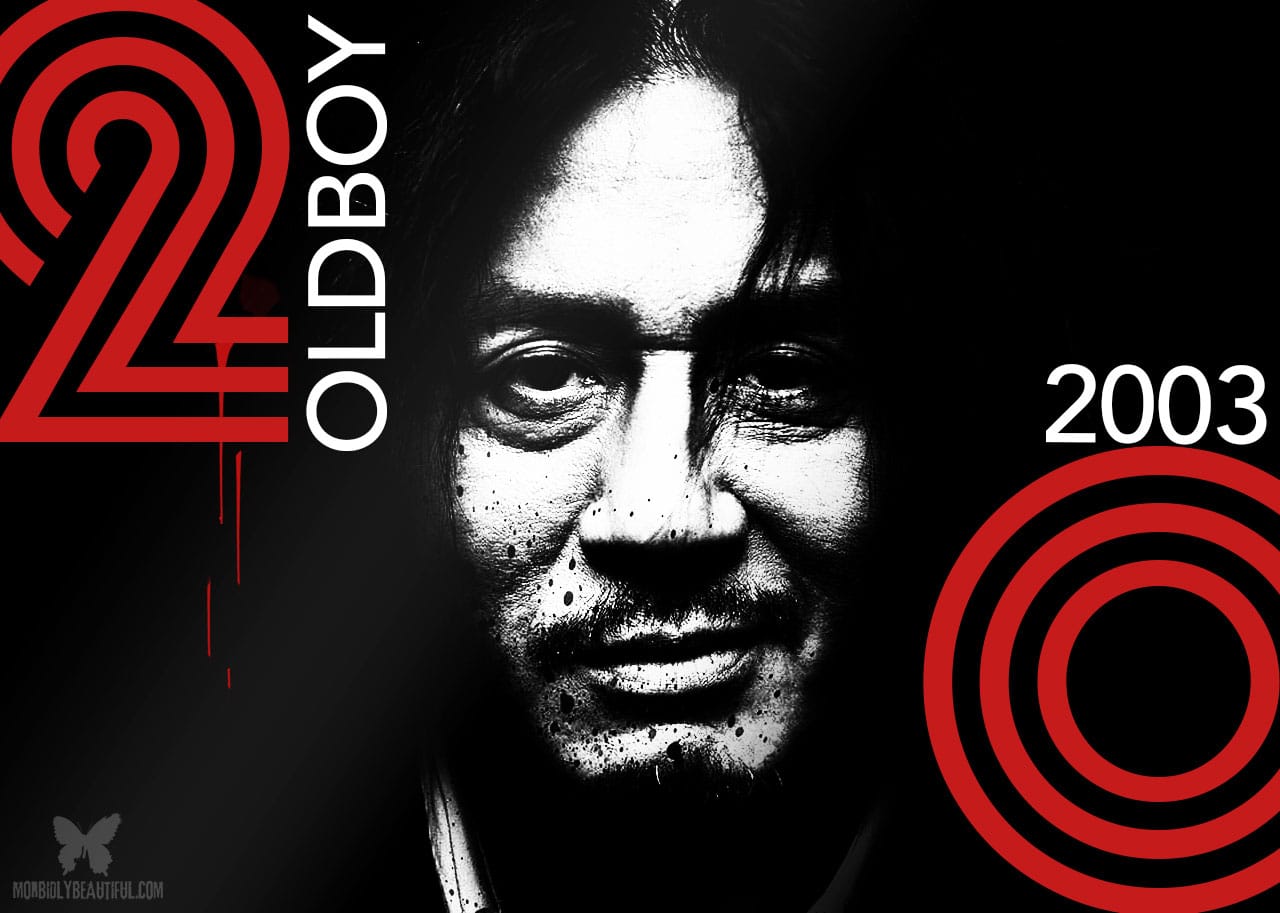
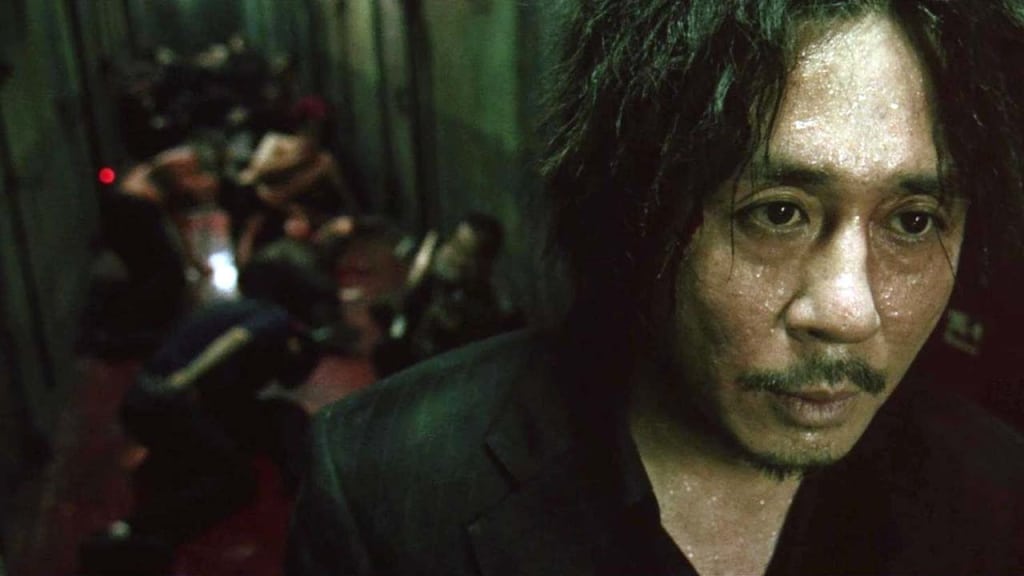
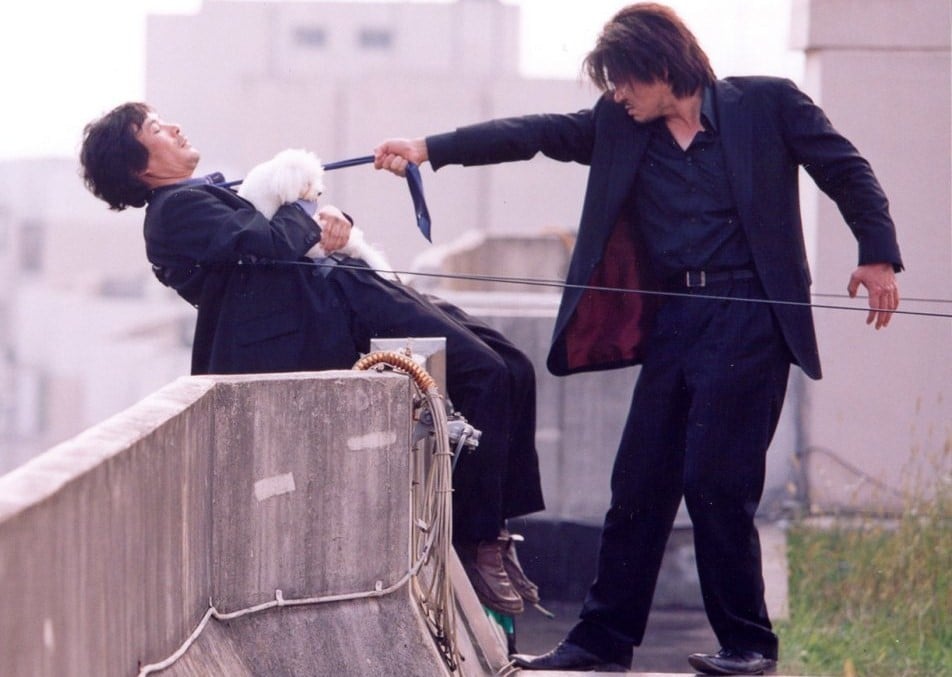
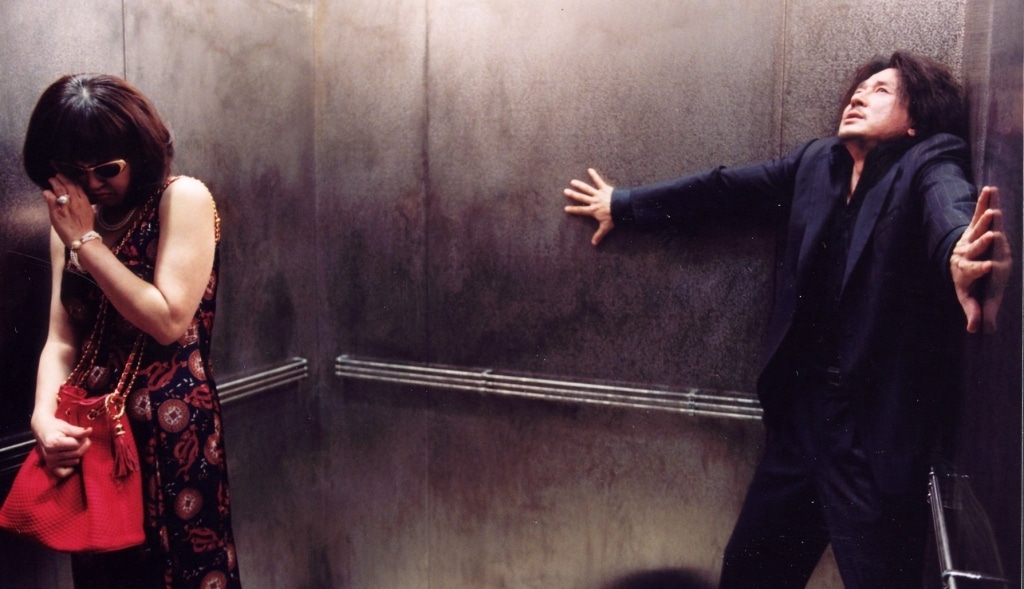
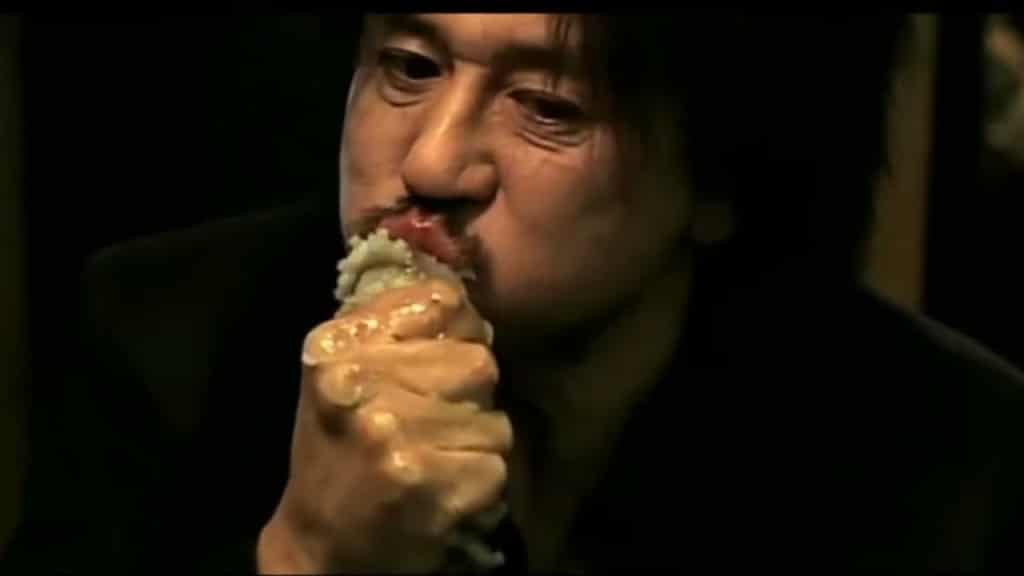
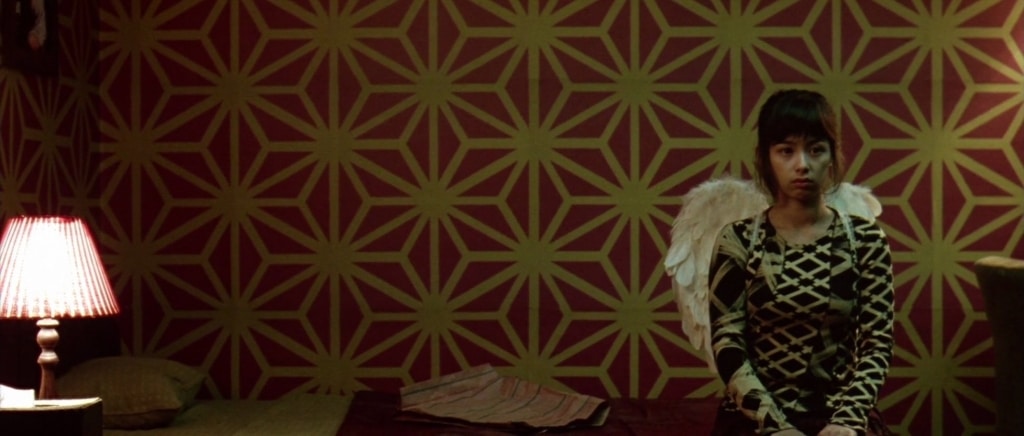
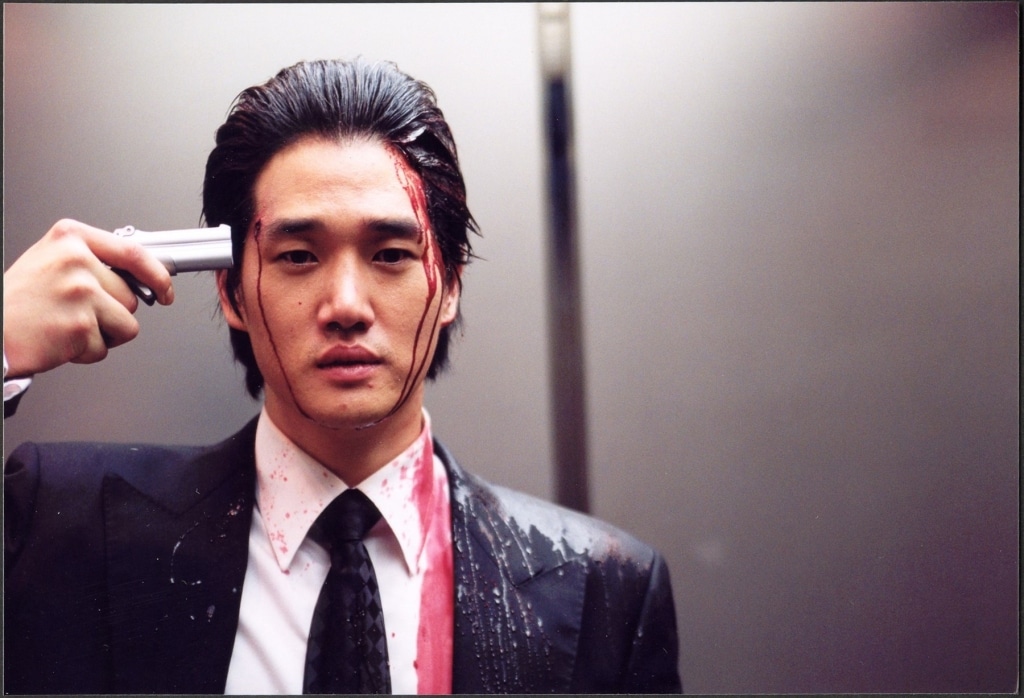
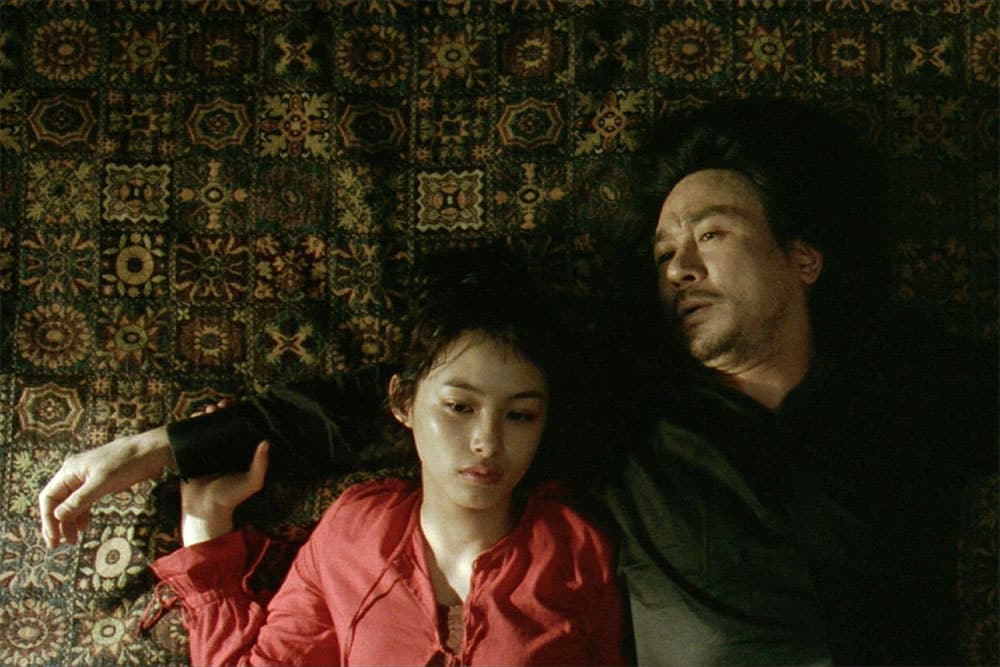
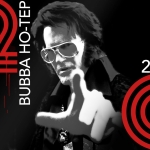
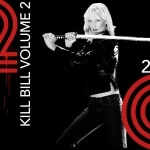
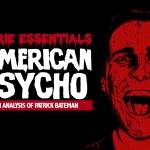
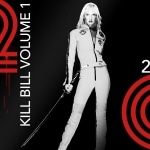







Follow Us!